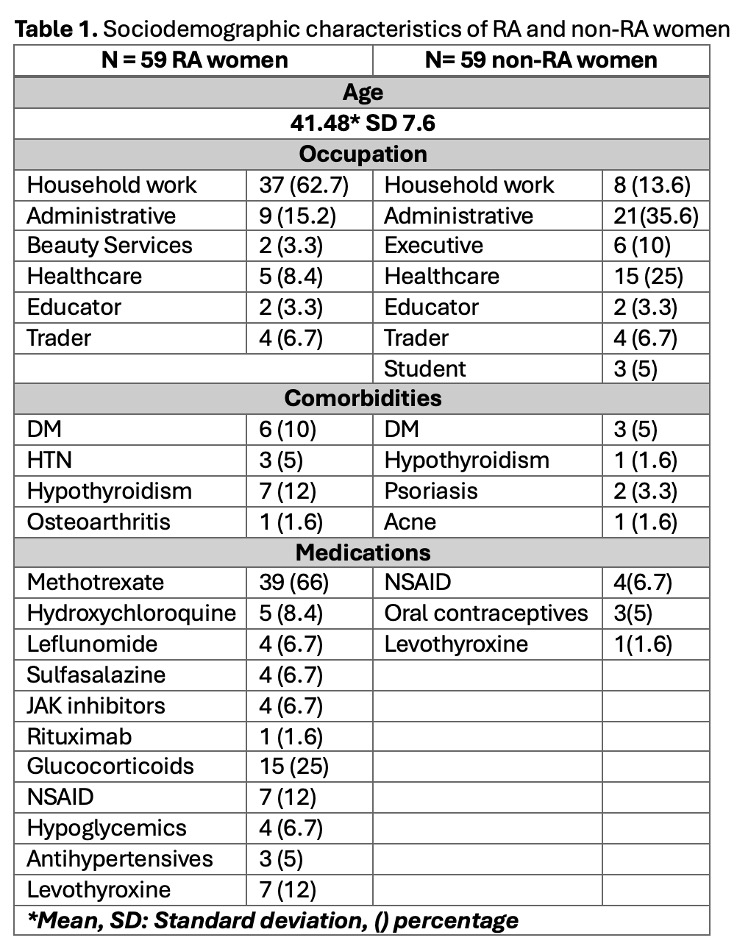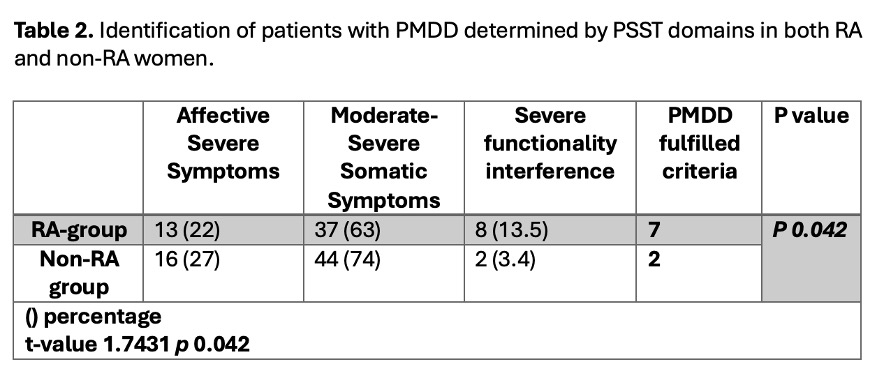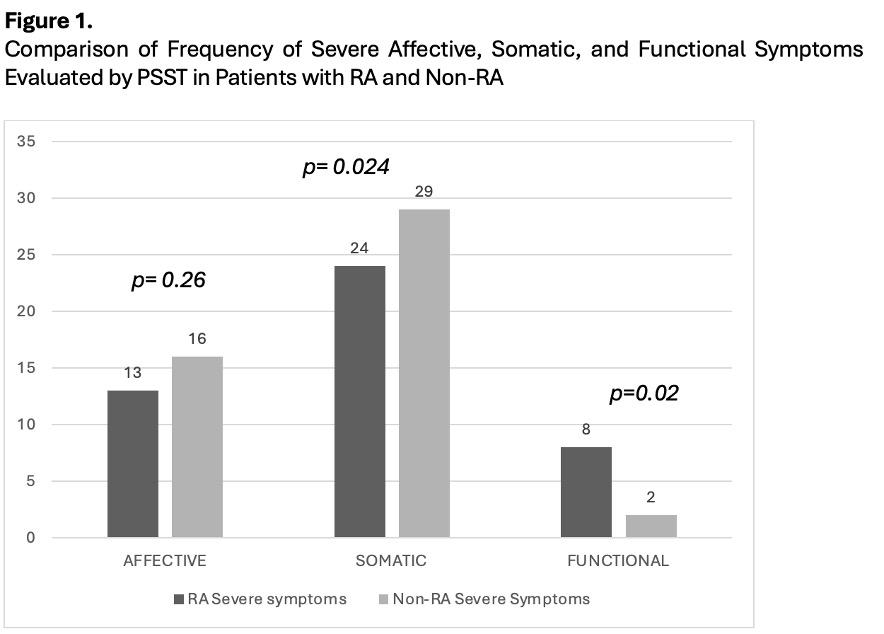Session Information
Session Type: Poster Session A
Session Time: 10:30AM-12:30PM
Background/Purpose: Premenstrual dysphoric disorder (PMDD), a severe form of premenstrual syndrome, is classified as a psychiatric disorder characterized by moderate to severe physical, affective, or behavioral symptoms that impair daily activities and quality of life. Rheumatoid arthritis (RA), is known to have systemic effects beyond joint inflammation, including potential impacts on mental health. Chronic inflammation, hormonal imbalances due to disease activity or treatments, and the psychological burden of living with a chronic illness can contribute. We aimed to evaluate PMDD in women with RA using the validated Premenstrual Symptoms Screening Tool (PSST) and compare the findings with those from a control group of non-RA women.
Methods: This cross-sectional, comparative study collected sociodemographic and clinical data from 2 groups: cisgender women > 18 years with validated RA (ACR/EULAR 2010 Classification criteria) and non-RA women, with >2 menstrual periods in the past year. PSST was used to identify and assess the severity of PMDD, evaluating interference in daily activities, somatic symptoms, and affective symptoms in both groups. A patient must fulfill at least 1 severe affective symptom, at least 1 moderate to severe somatic symptom, and at least 1 severe functional interference to be classified with PMDD, according to PSST. Exclusion criteria included psychiatric disorders, use of antidepressants, and other gynecological conditions. The RA group also excluded those with overlap syndromes, while the non-RA group excluded those with prior rheumatic disease diagnoses.
Results: 59 patients were evaluated, with each RA patient matched to a control group patient of the same age. Sociodemographic characteristics of both groups are described in Table 1. Considerably, more patients in the non-RA group held administrative positions, only 8 patients (13.6%) in the non-RA group were homemakers, compared to 37 patients (62.7%) in the RA group (p < 0.0001). PSST evaluation identified 7 patients with PMDD in the RA group compared to 2 patients in the non-RA group (p 0.042) (Table 2). Considering PMDD is characterized by interference with the performance of daily activities, 31(52.54%) patients in the RA group had moderate-severe functional limitation symptoms, compared with 21 (35.6%) non-RA group (p 0.049), and 8 versus 2 patients in the RA and non-RA groups, respectively, had severe functional impairment symptoms. (Figure 1). Notably, more patients in the non-RA group reported moderate-severe somatic and affective symptoms.
Conclusion: Women with RA demonstrate a higher occurrence of PMDD compared to non-RA group, as identified by PSST. RA patients also experience more pronounced functional impairment due to PMDD. The greater proportion of non-RA patients with moderate to severe somatic and affective symptoms could be explained by the fact that RA patients are more familiar with somatic pain. Despite daily activity limitations imposed by RA, addressing mental health issues in reproductive-age women, such as PMDD, is essential for comprehensive patient care, given that PMDD can interfere with their daily functioning.
To cite this abstract in AMA style:
Bardan-Inchaustegui A, Colunga Pedraza I, Arvizu-Rivera R, Garcia-Arellano G, Serna-Peña G, Elizondo-Benitez M, Gonzalez Melendez A, Massiel Garcia F, Galarza-Delgado D. Evaluating Premenstrual Dysphoric Disorder in Women with Rheumatoid Arthritis and Healthy Female Subjects [abstract]. Arthritis Rheumatol. 2024; 76 (suppl 9). https://acrabstracts.org/abstract/evaluating-premenstrual-dysphoric-disorder-in-women-with-rheumatoid-arthritis-and-healthy-female-subjects/. Accessed .« Back to ACR Convergence 2024
ACR Meeting Abstracts - https://acrabstracts.org/abstract/evaluating-premenstrual-dysphoric-disorder-in-women-with-rheumatoid-arthritis-and-healthy-female-subjects/



